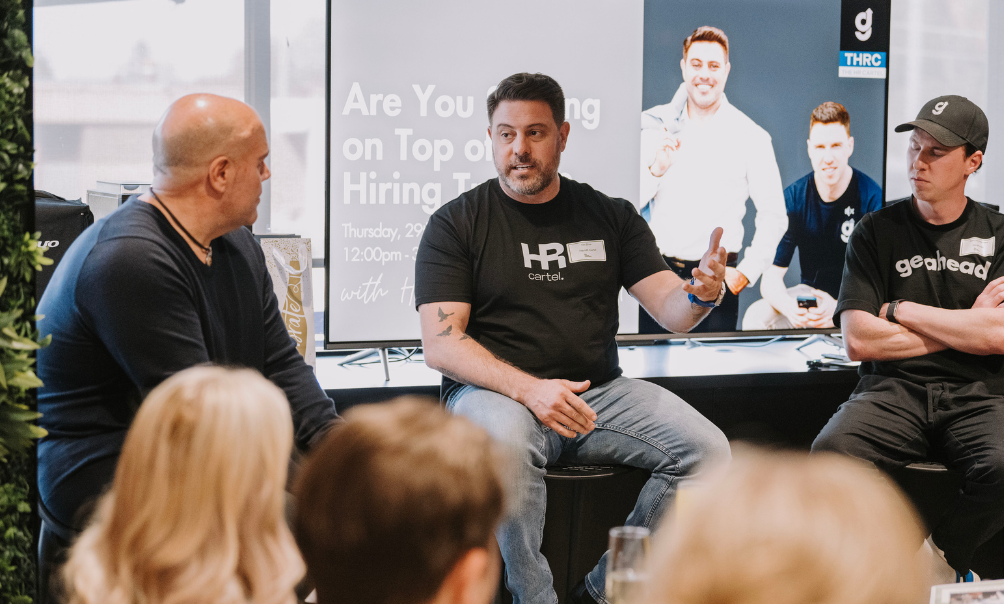
When discussing the earliest stages of recruitment, Tim shared some deficiencies he’s identified on the internal (employer) side, stating:
“(the) biggest problem that I see, and it’s an easy one to fix, is that they (employers) just go ahead and throw a Seek ad up. They say, we need this person, then go and advertise, but did you actually stop and do any design at all? Did you have a conversation and say this is where we are today, this role is critical to achieve A, B and C things for the next 12 months, or two years. So what this role needs to produce is not what it’s been producing for the last previous two years. So, did you organise the (new) scope? Did you identify what you actually need before you went to the market? 9 times out of 10, they don’t.”
Busy? So is your best candidate – only they’re about to be busy interviewing for other jobs and fielding calls with job offers, simultaneously with your own.
If you’re recruiting, then you’d better prioritise recruitment activity. If you’re not dedicating time – obviously it’s not a priority vacancy, in which case, why are you even starting a recruitment process?
Tim shares more thoughts in the issues he sees, occurring internally:
“Are you actually ready to recruit? That’s a question I’d urge everyone who’s going to recruit any position. It doesn’t matter what level it is. Ask yourself that, because we’re going to put four of the best applicants that we source from 60 people, get them down to 10, get them down to 5, down to 4, and they’re the best choice you’ve got.
They’re ready to go. But, you then say, I’m pretty busy this week, I’ll have one (interview) on Monday, one on Tuesday. Give me one on Thursday… That person’s waiting a week and a half before you’re going to get back to them. If it’s not a priority, don’t start it.”
Tanya Abbey provided even more commentary from the perspective of a recruiter:
“And that’s the thing you might forget number one (candidate) on Friday (if you started interviewing on Monday). Don’t start it if you’re not ready to hire. There’s an ego there when we’re hiring for our teams. But if you’re dragging out a process, the candidate in their mind goes “what’s my training going to be like? Is my manager going to be present for one on ones? Is this how they treat someone who’s hasn’t even started yet?” I’ve got clients that are sitting there 4 to 6 weeks that I’m waiting for feedback for candidates, and they’ll just go elsewhere.”
A key take away on scheduling and prioritising your interview schedule:
If you can’t complete your interviews in quick succession, and ideally in a single day, this is going to cause problems and difficulty in securing your best candidate.
Scheduling 4 interviews of the best applicants spread across your week means some of those candidates will be waiting a week or more to hear your feedback on where they stand.
The best candidates you’re interviewing are also getting booked for other interviews with your competitors. Making the best candidates wait will typically result in losing them, fast.
“One thing I’ve picked up over the years, and it’s a good measure here for anyone who wants to take this on board. I’ve often sat back in interview rooms, and watched (how) these leaders interview. Some are great, some aren’t that great.
But if the hiring manager is doing 80 percent of the talking in the interview that’s a bad sign. It’s a very bad sign, and what that is about… is you’re trying to convince this person to join your team, and (talking about) what you can do for them. You’re missing the whole point of that conversation.
It’s got to be exactly reversed. You need the candidate spending 80 percent of their time explaining what they can do for your business. What’s in it for you if you’re going to hire them? If that’s the conversation you’re having, you’re going to make a far better decision.”
Take away: Watch how much talking you’re doing, when you’re running recruitment interviews. You need the candidate to be doing 80% of the talking, be strategic about this conversation, and get the best information possible.

